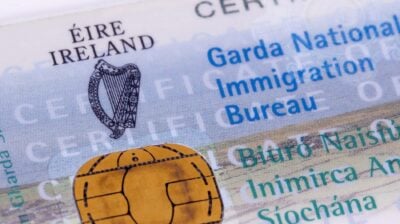What childcare am I entitled to in Ireland?
Learn more about you and your child’s rights when it comes to early learning and childcare

A large number of early learning and care services operate across the country. These include care provided outside anyone’s home like crèches and preschools; or home-based childminders. Early learning and childcare services may be run privately for profit, while community-based ones are run not for profit.
All early learning and care services provided outside a home must register with the Early Years Inspectorate of Tusla (The Child and Family Agency). Childminders minding four or more pre-school aged children must also register with Tusla. Childminders minding three or fewer children do not have to register. See Tusla’s website for the list of registered services.
For more information on all the topics below please see:
- the National Childcare Scheme website
- contact your local City or County Childcare Committee
What types of childcare are there in Ireland?
The main types of childcare service provided outside a home are:
- full-time – more than five hours per day
- part-time – more than 3.5 hours but less than five hours per day
- sessional – 3.5 hours per day at the most
Not all services offer all three types of care. Childminders, who provide a childcare service from their own home for payment, can do so:
- full-time
- part-time
- for times and hours agreed with parents.
If you would like more information or help to find a centre or childminder close to you, you can contact your local City or County Childcare Committee. You can also find information from Barnardos on how to choose an early education and care setting that is right for your child here.
What is the Early Childhood Care and Education Programme (ECCE) – ‘Free preschool’?
The Early Childhood Care and Education (ECCE) programme is also known as ‘Free preschool’. It provides free pre-school places to all children:
- aged between two years and eight months and until they start primary school, or
- not older than five years and six months.
When can my child attend preschool in Ireland?
Entry to preschool is based on your child’s date of birth in relation to the programme year. The year is from September to June. The age your child is in September determines whether or not they can go to preschool. To find out if and when your child is eligible you can go to the Department of Children and Youth Affairs Online Calculator.
The scheme allows your child to attend, for free, a preschool that is taking part in the Tusla-registered preschool service. They may go for three hours a day, five days a week, for 38 weeks of the year. If your child attends the childcare service for extra hours, you will have to pay for these extra hours in the normal way. Providers can also ask for a refundable deposit to keep an ECCE Programme place for a child.
What childcare is available for children after starting primary school?
Regulated school-age childcare is provided in varied places:
- childcare centres can cater for children from birth to 15 years
- a childminder’s home
- some childcare services cater only for school-age children.
Centre-based services may be on or off school premises. A school-age childcare service is expected to meet children’s need for rest, relaxation and recreation after school and in non-term time.
Childcare services for school-age children may be run privately for-profit or are community-based and are run for no profit. Some centres will pick children up after school and bring them to the childcare centre. For information on what services are available you should check with your service provider.
What financial supports can I access to help with the fees charged by my child’s early childhood education and care or school-age childcare service?
The ECCE (preschool) scheme is free. Parents do not have to make any contribution to this unless they need extra additional hours. National childcare subsidies are available to help parents pay for their child to take part in early learning and care and school-age childcare services that are registered with Tusla.
Childcare subsidies
Until October 2019, the following childcare subsidies are available to parents.
- All parents are entitled to a non-means tested subsidy for children aged from 24 weeks until they are first eligible for the ECCE (preschool) programme
- Parents who receive certain State supports (for example, a medical card or a social welfare payment) may be entitled to other childcare subsidies. See the Department of Youth and Child Affairs (DCYA) website for further details
From October 2019, parents will have a statutory (legal) entitlement to a:
- non-means tested subsidy for all children aged between six months and three years attending registered childcare, or an
- income-assessed subsidy towards the cost of registered childcare for a child from age six months to 15 years of age
You will need to apply online and to have a verified MyGovID to apply. MyGovID is a single account that lets you use services from many government departments in Ireland, you can find out how to get a MyGovID on the MyGovID website. (Paper-based applications will be processed from January 2020.) The subsidy is always paid directly to childcare providers and subtracted from the fee for parents.
What extra supports are available if my child has a disability?
The Access and Inclusion Model (AIM) provides supports designed to enable children with disabilities to:
- access the Early Childhood Care and Education Programme (ECCE) in mainstream pre-school settings.
- take part fully alongside other children.
The AIM model offers tailored, practical supports based on a child’s need and does not require a formal diagnosis of disability. You can apply for AIM supports through your pre-school provider. They can apply, in partnership with you, for targeted AIM supports for a child. Information and guidance on AIM is available from your local City and County Childcare Committee and from the AIM website.
There are two additional supports for a child with autism:
- ‘early intervention’ classes around the country for children with autism from three years of age
- access to home tuition for children with autism from two and a half years of age and up until they start school, ECCE or early intervention class.
Where can I go if I have a concern or complaint about the early childhood care and education or school-age childcare services that my child receives?
The childcare service provider must manage and examine complaints. Wherever possible you should bring your complaint directly to them. Your early learning and care provider must have a comprehensive complaints policy in place. This policy will outline how your concern will be managed.
If you have a complaint, you should:
- ask for a copy of the complaints policy
- put your concerns in writing to the childcare provider
- ask that the childcare provider deals with your concerns as detailed in that policy.
You may be unhappy with their response or feel you cannot bring the matter to your provider directly. If so, you can contact the Early Years Inspectorate in Tusla by phone or by filling out the form on the Tusla website.
Tusla’s Early Years Inspectorate will let you know they have received your complaint and if they have accepted your concern or not. The Inspectorate does not investigate individual concerns or complaints so you will not receive an outcome or a decision on your particular issue. The information that you send to the Inspectorate will help them when they inspect services and evaluate if the service is being operated according to regulations.
Where can I go if I am concerned about the protection and welfare of a child in early childhood education and care, or school-age childcare services?
If you have any concern about the safety or wellbeing of a child you should contact your local social work office in Tusla. See My right to protection from harm, for more details.
Need more information?
We are here to answer your questions and talk through your options. Our online chat service is for 16 to 25 year olds and is available Monday to Friday, 4pm to 8pm. Chat to us now about your situation.
- Chat now to a trained Youth Information Officer
- Or leave us a message and we will email you back






